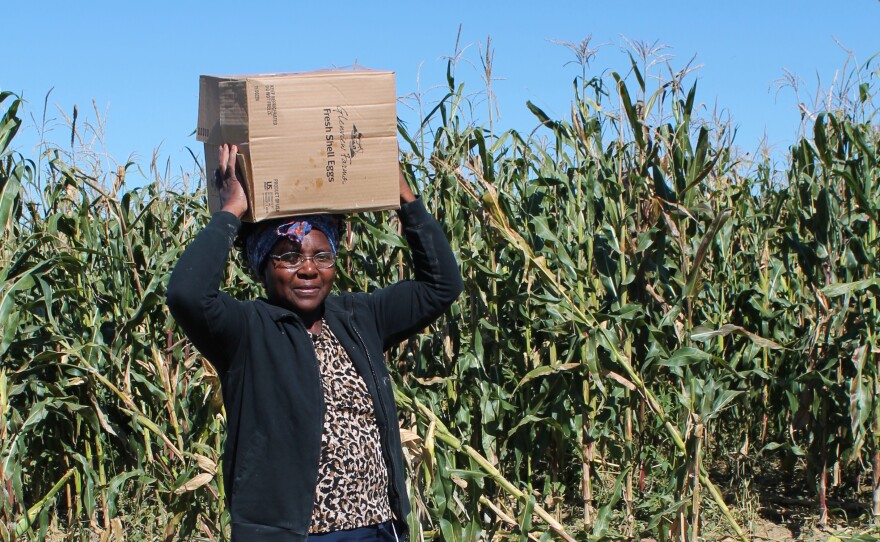This week on Food Trek, host Tory Dahlhoff explores why the number of Black farmers and the amount of farmland owned by Black farmers has dwindled significantly in not just Illinois, but all across the United States over the last century.
According to reporting from Investigate Midwest, USDA data show that Black farmers account for only 1.4% of all producers today — dropping from 14% in the 1920s.
In this week’s episode of Food Trek, CHJ Umoja Gardens operator Janet Zintambila of Normal shared her story and highlights the barriers she has faced to owning farmland.
“I'm originally from Kenya… My parents were farmers, so we grew up on a farm. Everybody had to participate,” said Zintambila. “It's just a natural part of many of us who grew up in Kenya or in Africa. Farming is just part of us — it's in our genes.”
We recently joined Zintambila in Ashkum, Illinois, where she prepared and shared some of her favorite Kenyan dishes with friends and employees of Janie's Mill. Zintambila is working with Janie's Mill to produce and market a white cornmeal that is a key ingredient in dishes like ugali, a thick corn paste that is a staple at the Kenyan dinner table.
“Farming is my passion,” said Zintambila. “I told someone the other day I’ll die farming.”
Since moving to the United States over 40 years ago, Zintambila has collaborated with numerous family farms to find creative ways to bring her products to market with a focus on sharing her love of Kenyan food and the culinary traditions of those in her Kenyan community.
“My life really has revolved around farming. I don't own land, yet — it's one of my dreams,” said Zintambila. “My dream is to own maybe five acres on my own someday. But for now, I'm just leasing land from friends.”
In recent decades, availability of farmland and access to owning land has become a major barrier of entry for small farms across the U.S.
“There are barriers, but I believe farming is for everybody,” said Zintambila. “Nobody should be limited from farming … it's just the land access is not as available as we would like it to be.”
In May, the state’s Agriculture Equity Commission Act was signed into law. It creates an Agriculture Equity Commission to study and provide recommendations to state leaders to increase equity in agriculture for minority farmers, small farms, and specialty crop farms.
However, legislation to create a Black Farmer Restoration Program stalled in the General Assembly earlier this year. That’s a more comprehensive bill aimed at putting more Illinois farmland in the hands of socially disadvantaged farmers and to families with a history of land dispossession.
“Food is so cultural, but I think we need to manage the culture so we can test each other's food,” said Zintambila. “My whole idea is, let's all get this big banquet table and share each other's foods and learn from each other.”







